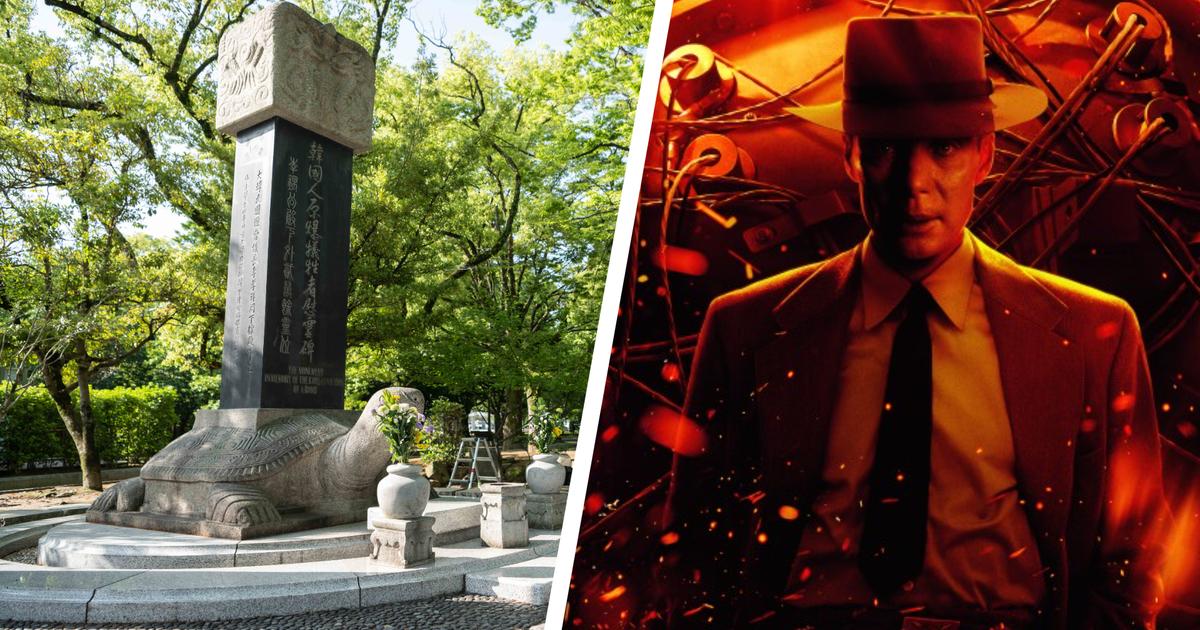Arnaud Nanta is a research director at the CNRS, specialist in Japan and its colonial empire. His translation of the work
The Massacre of Nanking,
by T. Kasahara
(Hémisphères, 2024)
, will be released at the end of April.
LE FIGARO. - How will the
Oppenheimer
film
be received in Japan, many months after its international release?
ARNAUD NANTA.
- Releases are usually delayed by about six months between the United States and Japan. In Japan, the public has little information other than what the Japanese-language press communicates, and for the moment, Toho Studios, which distributes Universal's films in Japan, has not released any information about the film outside of the casting.
However, when the film was released on DVD and BR in November 2023 in the United States,
Oppenheimer
enjoyed some success in import sales in Japan, even though it does not contain Japanese subtitles or dubbing, which which shows the public's interest in this film. You have to wait for the first days after the national release to measure its real extent.
The film tells his version of the genesis of the manufacturing and use of the atomic bomb in 1945, on Hiroshima and Nagasaki, which led to the death of 210,000 people. 79 years later, what is the Japanese perception of this event?
Japan is the only country to have been struck twice by atomic weapons. The atomic bombings followed the devastation of large cities on the Pacific coast by American bombings: all of this contributed to forming the consciousness of having been a victim of the war within the population, despite the war that the country had provoked. in Asia.
Furthermore, Hiroshima and Nagasaki in particular have strong anti-nuclear weapons movements with unwavering support from municipalities for museums and exhibitions on the theme. However, there is no movement in the political sense that makes this issue its hobby horse. Furthermore, we must keep in mind that the Japanese right is even pro-nuclear weapons and pro-United States.
Also read: Hiroshima, the “hidden” city
Has the Japanese view of these events changed? Are they still as traumatized by this tragedy?
The national commemoration of August 15 for the war dead, which takes place immediately after those of the two atomic bombings, maintains within the population the trauma of the bombings (notably the napalm M69s) of the spring of 1945 and the two atomic bombings.
How do the Japanese people maintain memory work?
With the passage of generations, the question of the Asian and Pacific War (1937-1945) has become, over time, a question that younger generations do not like to discuss because it is felt to be imposed by previous generations. and in which young people have no responsibility.
This type of attitude, which can be found in France in a similar way with regard to Vichy or the colonial wars, contributes to reinforcing a sort of denial of memory, onto which the reform of the criteria for the approval of textbooks has been grafted. led by Shinzo Abe, allowing the ministry to censor a text without providing justification.
“The weight of the United States remains immense over current Japan”
What remains of the period of American occupation (1945-1952)?
After the Allied Occupation, Japan regained its independence in 1952, and is currently governed under a constitution dated 1946 which is close to the American constitution. However, Japan remains under the semi-supervision of the United States. The latter use some 130 sites on Japanese soil, including 81 military bases for the exclusive use of the American army, which can deploy on Japanese soil within the framework of the defense treaty. The weight of the United States therefore remains immense on current Japan, well beyond the period of Occupation.
Has American influence been deeply instilled within Japanese society?
Today's Japan is a society that is, in a certain way, very Americanized. Of course, Japan is not the United States and the habits of the Japanese are not those of the Americans. Nevertheless, the functioning of the business world, the fact of having a bipartisan right-right political life, the weakness of the unions, are very North American characteristics. We can add the strong American cultural presence (cinema, music), even if Japan is not the only country in this case.
Read alsoIn Hiroshima and Tokyo, bitterness after Oppenheimer's triumph at the Oscars
The Japanese sealed
a large-scale military partnership with London and Rome for the first time since the end of the war
. How can we explain this warlike revival of the political caste?
The Japanese army uses a lot of American equipment and the Mitsubishi combat fighters are based on the fighter planes developed by Lockheed Martin in the United States. We must not forget that any new technological development must be shared with the United States.
The Japanese right has always wanted to return to the political system before 1945. From this point of view, it is very constant. The future combat fighters concern a joint project carried out by England, Japan and Italy. It is interesting to see Germany collaborating with France on a future European combat fighter, and also buying American fighters...
Is the population also experiencing a renewed combativeness in mentalities?
The population is largely disinterested in these issues, with the exception of activists from both extremes, and benefits from American protection. Japanese society benefits
from "peace dividends"
in a similar way to Western Europe. The populations of Japan and Western Europe have similarly largely forgotten what war is and do not want it.

